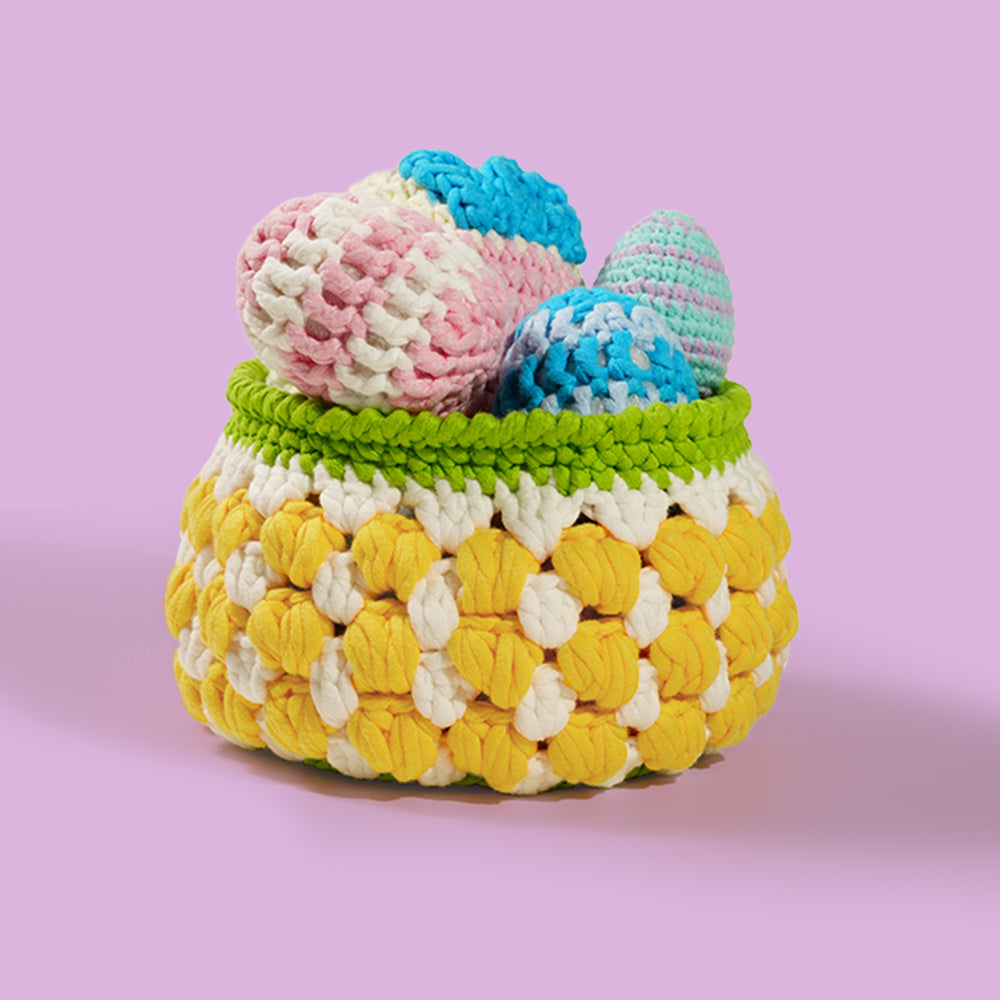Essential Crochet Tools Every Beginner Needs (And What You Can Skip)
Introduction: Don’t Let the Tool Aisle Intimidate You
When you’re new to crochet, it’s tempting to think you need a drawer full of fancy tools just to get started. Hooks in ten sizes? Blocking boards? Row counters? Yarn winders? Who knew a ball of yarn could demand so much gear?
But here’s the truth: you only need a few essential tools to start crocheting successfully, and the rest? Nice-to-haves at best. In this guide, we’ll walk through the tools that actually matter, what they do, and why they’re beginner-friendly. You’ll also learn what’s optional—so you can save your money (and your sanity).
🧶 The Must-Have Crochet Tools for Beginners
1. Ergonomic Crochet Hook (Size 3.5mm–5.5mm Recommended)
A good hook = a good experience. Basic metal hooks are okay, but ergonomic hooks (with soft rubber handles) reduce hand strain and help beginners keep a consistent grip.
Why It Matters:
Prevents fatigue, especially when learning tension control.
✅ All Kynova kits come with ergonomic hooks chosen to match your yarn weight.
2. Yarn Needle (a.k.a. Darning or Tapestry Needle)
Used for weaving in your yarn ends and finishing projects. Get one with a large eye to thread thicker yarns easily.
Pro Tip:
Blunt-tip plastic or metal works best for beginners—no poking or fraying.
3. Stitch Markers
These tiny lifesavers help you mark the start of a round, count stitches, or flag your stopping point. Perfect for amigurumi and circular patterns.
Look For:
Removable, safety-pin style markers (plastic or metal).
4. Sharp Yarn Scissors
You can use kitchen scissors—but a small, dedicated pair is better. Clean cuts prevent fraying and make your work neater.
Bonus:
Choose a cute shape—you're more likely to keep it close and use it!
5. Measuring Tape
Crochet is full of gauges, lengths, widths, and "make a 12-inch chain" steps. Keep a flexible measuring tape in your kit at all times.
🎁 Bonus: Tools That Come in Kynova Crochet Kits
We designed our beginner kits to be truly plug-and-play, which means no extra shopping needed. Inside, you’ll find:
✔ Ergonomic hook
✔ Yarn needle
✔ Stitch markers
✔ Safety eyes (for plushies)
✔ Premium yarn
✔ Full step-by-step video tutorial
Just open the box and start crafting. No fuss, no overwhelm.
🧰 Nice-to-Haves (But Not Essentials)
These tools can make crochet easier down the road, but aren’t necessary when you’re just starting out:
◻️ Yarn Winder
Helps you turn skeins into neat cakes, but not needed unless you’re using hanks or buying yarn in bulk.
◻️ Blocking Board & Pins
Useful for shaping lace, garments, or granny squares—but can wait until you’re finishing more advanced pieces.
◻️ Row Counter
Helpful for complex patterns, but you can just tally on paper (or use a phone app).
◻️ Hook Gauge/Ruler
Helpful for identifying mystery hooks or checking tension—but not required for most beginner projects.
🔥 What You Should Avoid as a Beginner
-
❌ Super tiny hooks (under 2.5mm): Too fiddly, hard on the hands
-
❌ Fuzzy novelty yarns: Impossible to see your stitches
-
❌ Low-quality plastic hooks: Can snag yarn and discourage progress
-
❌ Skipping tools entirely: No needle = no way to finish your project!
Q&A: Crochet Tools Edition
Q: Can I just buy a full tool kit on Amazon or Etsy?
You can—but many are packed with extras you don’t need yet. Start small and add tools as you grow.
Q: What’s better, aluminum or bamboo hooks?
Aluminum glides better for most yarns; bamboo is grippier and good for slippery yarn. Ergonomic handles > material.
Q: Do I need different tools for amigurumi vs. scarves?
Only slightly—amigurumi often uses safety eyes and tighter hooks. But the basics stay the same!
Final Thoughts: Invest in Tools That Grow With You
You don’t need a studio full of gadgets to enjoy crochet. With a good hook, quality yarn, a yarn needle, and a little guidance, you can make magic with your hands.
So before you load up on a dozen accessories you don’t understand, start with the basics. And if you want everything picked and tested for you? A well-designed beginner kit—like the ones from Kynova—takes out the guesswork and sets you up for success from stitch one.
